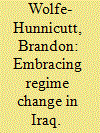| Srl | Item |
| 1 |
ID:
188724


|
|
|
|
|
| Summary/Abstract |
This article documents a significant and previously unknown episode in the history of Philippine labor, the explosive Manila Port Strike of the arrastre service workers—stevedores and longshoremen—in 1963. The strike was among the largest, costliest and most politically charged labor struggles in the nation's history and yet not only has no account of it been written, it has found no mention in over a half-century of historiography. Using confidential US State Department memoranda, contemporary newspaper accounts, Partido Komunista ng Pilipinas (PKP) publications, and material published by the Lapiang Manggagawa (LM), I reconstruct the history of the strike. This article examines how an event of this magnitude, while still part of living memory, could disappear from the historical record. The case of the 1963 Port Strike highlights the need to recover the histories of the oppressed by reading not only the official archives, but also the narratives of the workers’ own organisations, against the grain.
|
|
|
|
|
|
|
|
|
|
|
|
|
|
|
|
| 2 |
ID:
138313


|
|
|
|
|
| Summary/Abstract |
This article analyzes the U.S. foreign policy response to the 1958 Free Officers’ Revolution in Iraq. I look specifically at the question of the U.S. involvement in the 1963 coup d'état that first brought the Ba‘th party to power. Given the limits of available documentation, I leave the question of CIA involvement to one side and focus on the underlying logic of the U.S. foreign policy toward Iraq between 1958 and 1963. I show that while the American policymakers were deeply divided between a hard-line interventionist faction and a more accommodating anti-interventionist faction, by the middle of 1962, the Kennedy administration embraced regime change as the U.S. policy objective in Iraq. I further argue that it was the perceived threat to Iraqi oil installations, and not the fear of a Communist takeover, that pushed the American policy to embrace a policy of regime change.
|
|
|
|
|
|
|
|
|
|
|
|
|
|
|
|